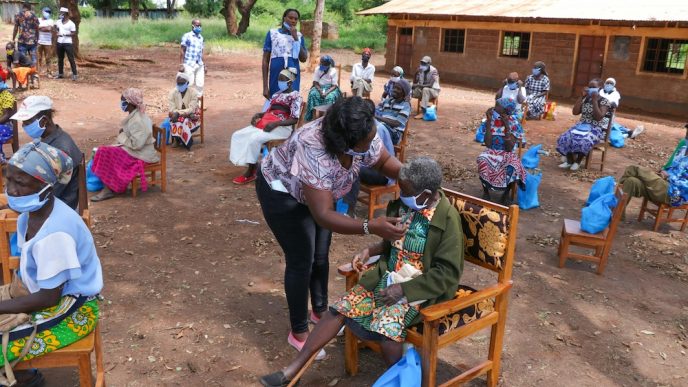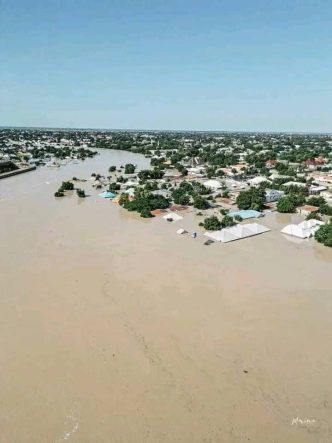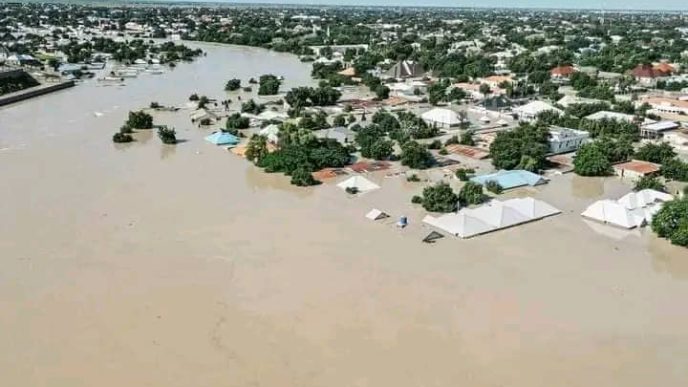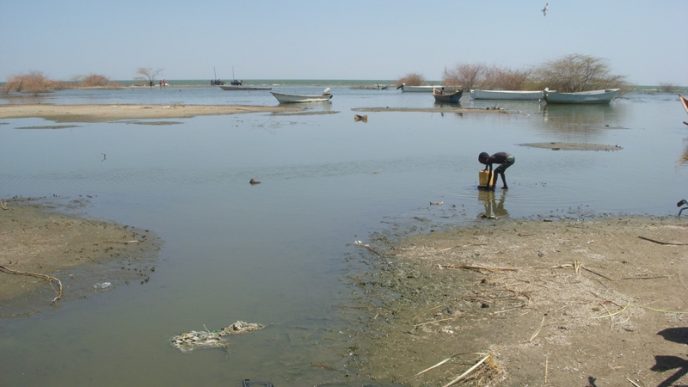Table of Contents Show
Abstract
The COVID-19 pandemic had a significant impact on healthcare-seeking behaviours globally, particularly concerning mental health. Lockdowns and social distancing measures led to an increase in the use of online platforms to access mental health information. In Nigeria, where digital technologies are becoming more prevalent and mental health facilities are not widespread, there is a need to understand how online mental health searches varied across different regions during and after the pandemic. This study aims to analyse the patterns of online healthcare information-seeking behaviour related to mental health in Nigeria during and post the COVID-19 pandemic. A mixed-methods research design was used, combining Google Trends data from 2019–2021/2022–2025, with a questionnaire distributed to 400 respondents to assess personal experiences and barriers to accessing mental healthcare in Nigeria. The study considered independent variables such as COVID-19 periods (during vs post-pandemic), socio-demographic factors (age, gender, education, location, and income level), and barriers to accessing mental healthcare in Nigeria. The dependent variables included the volume of mental health-related online searches. Data analysis will involve descriptive and inferential statistics on search volume index (SVI). Machine learning will be used for time-series analysis/K-means clustering, geospatial mapping using geographic information system (GIS) software, and Spearman’s rank correlation to examine the relationship between mental health-related searches and barriers/socio-economic factors. This study integrates artificial intelligence (AI), specifically machine learning, into the social science investigation of online information-seeking behaviour related to mental health in Nigeria.
Keywords: COVID-19 pandemic, machine learning, mental health, online information-seeking behaviour, spatial analysis
Introduction
The COVID-19 pandemic, which began in late 2019, has significantly disrupted public health systems and societal structures across the globe (Chen et al. 2021; Talevi et al. 2020). The pandemic has not only caused health issues but also had significant repercussions on various aspects of society due to interventions like lockdowns and social distancing. These measures have had extensive consequences on economic stability, social interactions, and individual well-being (Galea, Merchant, and Lurie 2020; Venkatesh and Edirappuli, 2020; Fluharty et al. 2021). These disruptions have led to a growing concern about a potential crisis in mental health, with increasing cases of anxiety, depression, and emotional distress during and continuing after the pandemic (Chen et al. 2021; Pfefferbaum and North 2020; Cullen, Gulati, and Kelly 2020).
Mental health, defined as a state of well-being in which individuals can cope with the normal stresses of life, work productively, and contribute to their communities (Malette 2023; Ugwu, Onayinka, and Sanni 2024), has become a critical public health focus during the pandemic. Research suggests that individuals with pre-existing mental health conditions are particularly vulnerable, often experiencing reduced life expectancy and poorer physical health outcomes (Rodgers et al. 2018). Vulnerable populations such as the elderly, adolescents, and children have been disproportionately affected (Talevi et al. 2020; Catling et al. 2022).
In Nigeria, the pandemic has compounded longstanding mental health challenges rooted in socio-economic hardship, security issues, and a fragile healthcare infrastructure (Ugwu, Onayinka, and Sanni, 2024). Nigeria faces a critical shortage of mental health professionals, with only a limited number of psychiatrists and psychologists serving a population of over 200 million (Okpalauwaekwe, Mela and Oji 2017; Ugwu, Onayinka, and Sanni 2024). Barriers to accessing healthcare services, such as high expenses, geographical remoteness, and entrenched social disapproval, continue to exist. These obstacles hinder individuals from receiving necessary medical care (Labinjo et al. 2020; WHO 2016). Consequently, many Nigerians with mental health conditions lack access to modern, evidence-based treatment options (Omigbodun 2001; Wada et al. 2021).
Due to the restricted availability of formal mental health services, a significant number of individuals in Nigeria are seeking information from alternative sources, with online platforms being a popular choice. The pandemic accelerated this trend, as restrictions on physical movement and the health system strain drove people to seek health-related information online. Digital platforms offer convenience, affordability, and anonymity, making them a preferred choice for many (Jia, Pang, and Liu 2021; Jamiu et al. 2023). The motivations for seeking health information online range from understanding symptoms and exploring treatment options to making informed health decisions (Riordain and McCreary 2009).
Although online health information-seeking behaviour has been studied in Nigeria, particularly among groups like university students and pregnant women, much of the existing research assessed this behaviour before and in the course of the pandemic (Jamiu et al., 2023). There remains limited empirical evidence on mental health information-seeking online behaviour during and after the pandemic, particularly across different geographic regions of Nigeria. Furthermore, while the national increase in internet and smartphone usage was forecasted to exceed 65.7 million users in 2025 (Sasu 2024), thus suggesting a growing reliance on digital public health infrastructure, questions remain about whether this infrastructure is equitably accessed and effectively used for mental health support.
This study addresses the critical gap in understanding the spatial dynamics of online mental health information-seeking behaviour in Nigeria. It focuses on comparing trends during the COVID-19 pandemic (2020–2021) and the post-pandemic period (2022–2024). The objectives are fourfold: to examine the temporal and spatial patterns of online mental health information-seeking behaviour; to identify regional disparities across Nigerian states; to explore key barriers such as limited access to mental health services, stigma, digital infrastructure, and socio-economic challenges that drive individuals to seek mental health information online; and to assess the relationship between online mental health information-seeking behaviour and contextual factors such as internet penetration, mental health service availability, regional socio-economic status, and population density.
This study integrates artificial intelligence (AI), specifically machine learning, into a social science investigation of online information-seeking behaviour related to mental health in Nigeria. While grounded in behavioural and societal analysis, the research applies K-means clustering and time-series analysis to large-scale Google Trends data to identify patterns in mental health-related search behaviour during and after the COVID-19 pandemic.
The relevance of this study to Nigeria is huge, as access to formal mental healthcare is limited due to a shortage of professionals, high costs of services, stigma, and inadequate infrastructure. As a result, many people turn to online platforms for mental health information, which may not be effective. By examining spatial patterns of this behaviour during and after the COVID-19 pandemic, the study highlights regional disparities and digital health gaps. Its findings can guide policymakers and health stakeholders in developing targeted, equitable interventions to improve mental health support across the country.
Methodology
This study employs a mixed-methods research design to explore online mental health information-seeking behaviour in Nigeria during and after the COVID-19 pandemic. It integrates secondary data from Google Trends with primary survey data to provide both quantitative and contextual depth. The Google Trends data will be analysed for two time periods: 2019–2021 (during the pandemic) and 2022–2025 (post-pandemic). The data will focus on search terms related to mental health (e.g., “anxiety,” “depression,” “stress,” “PTSD”) and COVID-19 (e.g., “coronavirus symptoms,” “COVID-19,” “pandemic”). This will help assess temporal trends (search volume index) and spatial variations in online health information-seeking across Nigeria’s states. A structured questionnaire survey will be administered to 400 respondents across Nigeria. Using a stratified sampling method. The survey will ensure diverse representation across geographic and demographic groups.
The independent variables in this study include the COVID-19 period (during vs post-pandemic), socio-demographic factors (age, gender, education, region, and income), and barriers to accessing mental healthcare. The dependent variable is the volume of mental health-related searches online. Data analysis will involve both descriptive and inferential statistics. Descriptive statistics (frequencies, means, percentages) will be used to summarise survey responses, with results visualised using charts and geographic information system (GIS) maps to illustrate regional disparities. For inferential analysis, time-series analysis and K-means clustering (via machine learning techniques) will be used to identify distinct patterns in search behaviour over time. Additionally, Spearman’s rank correlation will examine relationships between socio-economic variables and online information-seeking behaviour, as well as between barriers to mental healthcare and online searches.
Ethical Considerations
Using publicly available, anonymised data from Google Trends generally does not require specific ethical approval for human subject research. However, we will ensure that we are complying with Google’s terms of service. We will also obtain ethical approval from our institution’s research ethics board and ensure informed consent from respondents to the questionnaire and maintain anonymity and confidentiality of their responses.
Expected Results
This study expects to reveal the temporal and spatial patterns in online mental health searches, with increased activity during and after the COVID-19 pandemic. We anticipate identifying regional disparities in online mental health engagement, influenced by differences in barriers to physical mental healthcare delivery and socio-economic variables. Finally, we expect to find correlations between online information-seeking behaviour and barrier factors/socio-economic factors, which will inform targeted policy responses for improving mental health access.
Interdisciplinary Implications
This research bridges disciplinary boundaries by integrating computational methods (machine learning), public health, social science, and GIS to explore how Nigerians interact with digital platforms for mental health information. It combines machine learning and conventional statistical analysis to understand behavioural patterns and healthcare access, offering a holistic framework for understanding online health-seeking behaviour in a rapidly digitising society.
Acknowledgements
I sincerely thank the brilliant minds behind the LUNE Two Fellowship. The sessions, facilitators, and mentors were truly outstanding experts in their respective fields. Special thanks to Ololade, Habeeb, and Khadijat for your unwavering support and for gently guiding us through every stage of the fellowship.
I am deeply grateful to my mentors, Ayantola and Kauna. Your responsiveness, understanding, and generosity with your expertise made a significant difference in shaping this work. Thank you for challenging me to think more critically and deeply about my research, even as I approached it from a social sciences angle. To my teammates, Dami and Anthony, working with you was both inspiring and enriching.
Finally, to all the fellows and navigators selected for this programme, I’m deeply impressed by the exceptional calibre of individuals involved. You all made this journey truly memorable. Thank you all.
References
Chen, P., Yanna Pusica, Dorsa Sohaei, Ioannis Prassas, and Eleftherios P. Diamandis. “An Overview of Mental Health during the COVID-19 Pandemic.” Diagnosis 8, no. 4 (2021): 403–412. https://doi.org/10.1515/dx-2021-0046.
Cullen, W., Gulati, G., and Kelly, B.D. “Mental Health in the COVID-19 Pandemic.” QJM: An International Journal of Medicine (2020): 311–312. https://doi.org/10.1093/qjmed/hcaa110.
Fluharty, Meg, Feifei Bu, Andrew Steptoe, and Daisy Fancourt. “Coping Strategies and Mental Health Trajectories during the First 21 Weeks of COVID-19 Lockdown in the United Kingdom.” Social Science & Medicine 279 (2021): 113958. https://doi.org/10.1016/j.socscimed.2021.113958.
Galea, Sandro, Raina M. Merchant, and Nicole Lurie. “The Mental Health Consequences of COVID-19 and Physical Distancing: The Need for Prevention and Early Intervention.” JAMA Internal Medicine 180 (2020): 817.
Ikwuka, U., Niall Galbraith, Ken Manktelow, Josephine Chen-Wilson, Femi Oyebode, Rosemary C. Muomah, and Anuli Igboaka. “Ideological vs. Instrumental Barriers to Accessing Formal Mental Health Care in the Developing World: Focus on Southeastern Nigeria.” Journal of Health Care for the Poor and Underserved 27 (2016): 157–175.
Ikwuka, Ugo, Niall Galbraith, Ken Manktelow, Josephine Chen-Wilson, Femi Oyebode, Rosemary Chizobam Muomah, and Anulika Igboaka. “Pathways to Mental Healthcare in South- Eastern Nigeria.” Transcultural Psychiatry 0, no. 0 (2016): 1–21. https://doi.org/10.1177/1363461516660903.
Jamiu, O., Ugo N. Ozoeze, Yusuuf Tunde Gbonjubola, and Daha Garba Muhammad. “The Pattern of Online Health Information-Seeking Behavior Before and During the COVID-19: An Online Cross-Sectional Survey Among Nigerians.” Sri Ramachandra Journal of Health Sciences 3, no. 1 (2023). https://doi.org/10.25259/SRJHS_38_2022.
Jia, X., Pang, Y., and Liu, L.S. “Online Health Information Seeking Behavior: A Systematic Review.” Healthcare (Basel) 9 (2021): 1740.
Labinjo, T., Laura Serrant, Russell Ashmore, and James Turner. “Perceptions, Attitudes and Cultural Understandings of Mental Health in Nigeria: A Scoping Review of Published Literature.” (2020).
Malette, N. Understanding Mental Health. In It’s All Good (Unless It’s Not). (2023). https://doi.org/10.59962/9780774839020-00.
Omigbodun, O.O. “Cost-Effective Model for Increasing Access to Mental Health Care at the Primary Care Level in Nigeria.” The Journal of Mental Health Policy and Economics 4 (2001): 133–139.
Okpalauwaekwe, U., M. Mela, and C. Oji. “Knowledge of and Attitude to Mental Illnesses in Nigeria: A Scoping Review.” Integrative Journal of Global Health 1, no. 5 (2017). http://www.imedpub.com/integrative-journal-of-global-health/.
Pfefferbaum, B., and North, C.S. “Mental Health and the COVID-19 Pandemic.” (2020).
Riordain, R.N., and Mccreary, C. “Dental Patients’ Use of the Internet.” British Dental Journal 207 (2009): 583–586.
Rodgers, M., Dalton, J., Harden, M., Street, A., Parker, G., and Eastwood, A. “Integrated Care to Address the Physical Health Needs of People with Severe Mental Illness: A Mapping Review of the Recent Evidence on Barriers, Facilitators and Evaluations.” International Journal of Integrated Care 18 (2018): 9.
Sasu, D.D. “Nigeria: Mobile Internet Users 2020–2029.” Statistica (2024). https://www.statista.com/statistics/972896/nigeria-mobile-internet-users/.
Talevi, Dalila, Valentina Socci, Margherita Carai, Giulia Carnaghi, Serena Faleri, Edoardo Trebbi, Arianna Di Bernardo, Francesco Capelli, and Francesca Pacitti. “Mental Health Outcomes of the COVID-19.” Rivista di Psichiatria 55, no. 3 (2020): 137–144.
Ugwu, N., T. Onayinka, and K. Sanni. “Exploring Innovative Digital Resources and Models for Bridging Mental Healthcare Gap in Nigeria.” Unizik Journal of Educational Research and Policy Studies 17, no. 1 (2024). http://sjifactor.com/passport.php?id=21363.
Venkatesh, A., and Edirappuli, S. “Social Distancing in COVID-19: What Are the Mental Health Implications?” BMJ 369 (2020): m1379.
Wada, Y. H., Linu R., Emmanuel A., Karikari, E., and Njikizana, M., Lilian S., and Garba M. Khalid. “Mental Health in Nigeria: A Neglected Issue in Public Health.” Public Health in Practice 2 (2021): 100166.













